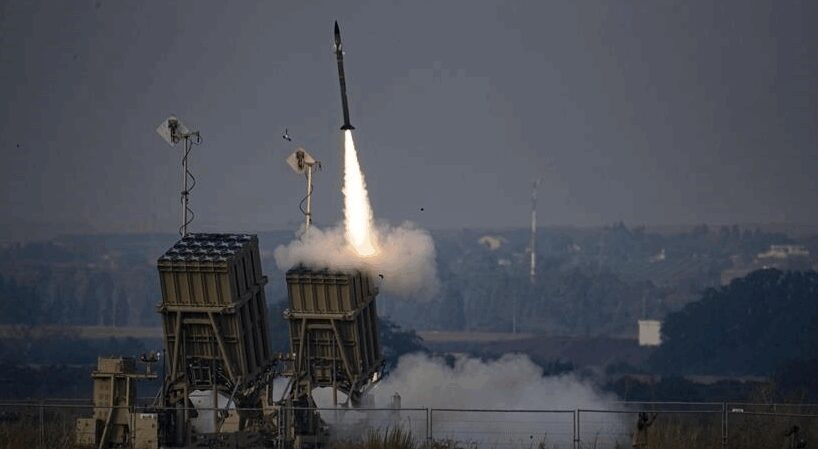
Shafaq News
The Israeli assassination of the Prime Minister of the Houthi-affiliated Yemeni government in Sanaa, along with several ministers on August 28, marked a new turning point in the ongoing confrontation between the two sides that has continued for nearly two years.
The Yemeni response to this assassination was more sophisticated and impactful than previous attacks, involving the use of new weapons, including advanced ballistic missiles and offensive drones.
Although the main narrative of the current confrontation is Yemen’s support for Gaza, the recent escalation signals the potential for renewed regional expansion, which could pave the way for another round of strikes between Iran and Israel.
In contrast, some observers expect the Houthis’ retaliation to remain limited to avoid major escalation against Yemen and to prevent Israel from rallying regional or international alliances in its favor.
Since October 2023, the Houthis have carried out repeated missile and drone attacks on key Israeli targets, most notably Ben Gurion Airport. According to official figures, by the end of last July, Israel acknowledged being targeted by more than 220 attacks from Yemen. The Houthis also carried out over 170 maritime attacks on Israeli, Israel-linked, or US-affiliated ships.
Yemen’s Support For Gaza Remains Firm?
Adel Rajeh, a member of the Central Committee of the Justice and Construction Party, close to the Houthis, confirmed that Yemen’s support for Gaza remains “firm and consistent despite the Israeli aggression against the Sanaa government, American and Zionist threats, and domestic collaborators.”
Rajeh told Shafaq News that Yemen has adopted “a new military strategy using advanced weapons such as the cluster-type ‘Palestine 2’ missile, in addition to continuing naval operations,” warning that the coming days will witness major and surprising military operations, whether deep inside Israel or in the Red Sea area.
In the latest Houthi operation involving eight drones, images from Ramon Airport in Israel’s Negev region showed visible damage after a drone from Yemen exploded in the passenger terminal—an unusual event, as most drones from Yemen are typically intercepted before entering Israeli airspace, according to Israeli military reports.
Israeli affairs academic Ahmed Fouad Anwar does not rule out expanded mutual strikes between the Houthis and Israel. He explained to Shafaq News that the fear of widening conflict is increasing “as Israeli Prime Minister Benjamin Netanyahu’s room for maneuver narrows, and he seeks to involve other parties—such as Egypt—to offset its Suez Canal losses.”
Regional Escalation… Unlikely?
Regional affairs researcher Kamal Zaghloul, while convinced of an imminent Houthi attack in response to the assassinations in Sanaa, believed the strikes will be limited to avoid major escalation against Yemen, ruling out the inclusion of Iraq or Iran in the escalation.
Zaghloul told Shafaq News that this is due to the US stance, which is currently trying to negotiate with Hamas. “Those who want to end a war don’t start another.”
He attributed the American desire to end the conflict to Washington’s growing concern about the security alliance between China, Russia, and North Korea in the Eurasian region, prompting the US administration to shift focus to that area.
Iraqi political analyst Ahmed al-Yasiri believed Houthi attacks on Israel could be one reason for the potential direct targeting of Iran and the acceleration of an anticipated confrontation between them. “Especially if the attacks are effective against Tel Aviv, it could also activate dormant fronts.”
He pointed out, however, that the conflict is unlikely to extend to new countries, adding that “any attack carried out by the Houthis reinforces the idea of American support for Israel.”
In May, US President Donald Trump announced a ceasefire agreement between the United States and the Houthis following a confrontation that began in mid-March, during which the US carried out more than 1,000 airstrikes on Yemeni targets, while the Houthis responded with near-daily operations targeting US military and commercial vessels in the Red Sea and Arabian Sea.
Jordanian writer and political analyst Hazem Ayad told Shafaq News that the expansion of battlefronts in the region depends on the degree of “American involvement in the regional conflict,” noting that Houthi retaliation could target sources of threat extending to East Africa—including Somalia, Djibouti, and Eritrea—and potentially the Gulf region.
However, Ayad considered this scenario “unlikely at present,” explaining that the Houthis are not seeking to provoke the formation of an international alliance against them and are trying to avoid this by limiting the scope of confrontation.
Ayad emphasized that the Houthis’ main concern is not the conflict with Israel or its allies, but rather “the regionally supported internal Yemeni movements,” warning that such a scenario could ignite the broader confrontation.
Written and edited by Shafaq News staff.





